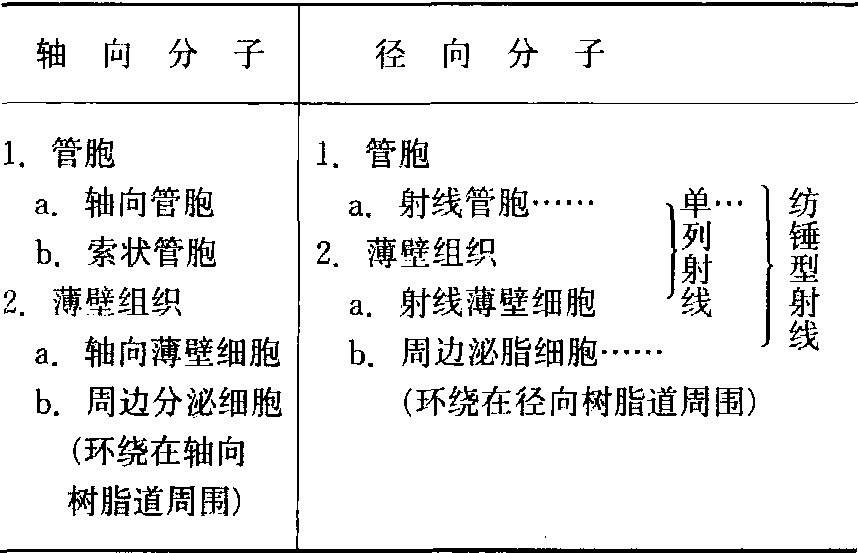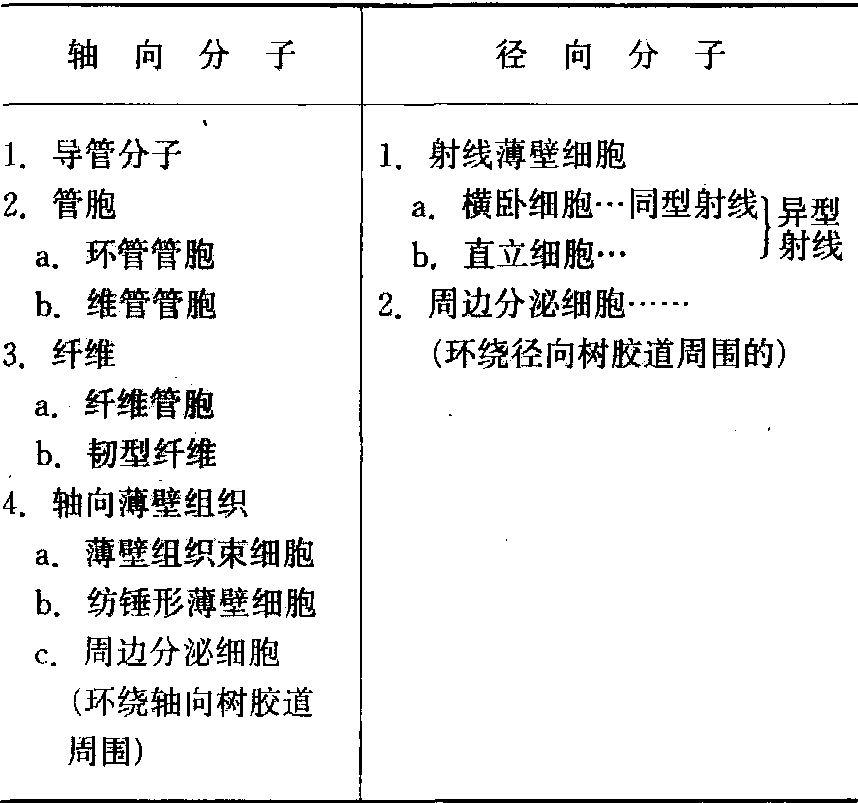木材微观构造microscopic structure ofwood
借助光学显微镜在分辨率0.2微米以内所观察到的木材解剖特征或木材构造特征。
构成木材基本单位是细胞。1立方米云杉木材约有3 500亿~5 000亿个细胞。对于这样多而小的细胞必须借助显微镜进行观察。这些细胞是由胞间层粘结而形成木材实体。木材实体也可以用化学方法处理,以除去胞间层使互相分离成单独的细胞或纤维,成为制浆造纸工业的重要原料,采用机械方法制浆亦可使纤维分离,但常易使许多细胞损坏。对于上述纤维原料进行微观构造观察,将有助于对制浆树种的鉴别,评估制浆造纸原料的质量和变化情况,以及对制浆适应性的了解。
木材微观构造特征是鉴别现代木材、化石木材的重要依据。针叶树材所包含的细胞种类较少,构造也较简单,阔叶树材则较复杂,组成的细胞种类亦较多。针、阔叶树材主要组成分子见表1、2。除上述针叶树材解剖分子外,在光学显微镜下尚可见到的主要微观构造特征,还包括:管胞胞壁上的纹孔和纹孔式;螺纹加厚,澳柏型加厚;眉条,径列条;交叉场纹孔;轴向薄壁细胞分布及端壁性状;射线薄壁细胞的水平壁、端壁性状;凹痕;树脂道及细胞内的晶体等。阔叶树材中,除上述解剖分子外,尚可见到:导管分子或管孔的分布类型;导管分子壁上各种不同的纹孔式,各种穿孔或穿孔板类型,及射线—导管间的纹孔式;螺纹加厚、内含物;轴向薄壁组织类型,木射线组成及类型;纤维或管胞;晶体和硅石;生长轮等等。
表1 针叶树材解剖分子

表2 阔叶树材解剖分子

木材微观构造microscopic structure of wood
借助光学显微镜在分辨率0.2 μm以内所观察到的木材解剖特征或木材构造特征。木材微观构造特征是鉴别现代木材、化石木材的重要依据。